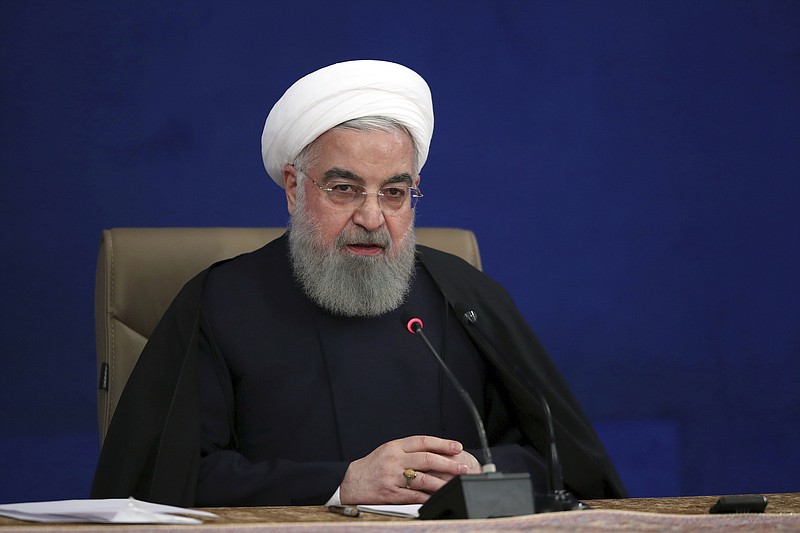TEHRAN, Iran -- Iran's President Hassan Rouhani on Monday claimed that Israel was behind the killing of a scientist who founded the Islamic Republic's military nuclear program in the 2000s in an effort to start a war in the last days of President Donald Trump's administration.
Rouhani's comments at a news conference marked the first time he has directly accused the Jewish state of carrying out the killing of Mohsen Fakhrizadeh last month.
Israel, long suspected of killing Iranian nuclear scientists over the past decade, has repeatedly declined to comment on the attack.
"Waging instability and war in the final days of the Trump administration was the main aim of the Zionist regime in the assassination," Rouhani said.
Rouhani vowed to avenge the killing but said his country will not allow Israel to decide the "time or venue" of any action. He said Iran will not allow instability in the region.
Fakhrizadeh headed Iran's so-called AMAD program, which Israel and the West have alleged was a military operation looking at the feasibility of building a nuclear weapon. The International Atomic Energy Agency says that "structured program" ended in 2003. U.S. intelligence agencies concurred with that assessment in a 2007 report.
After the killing of Fakhrizadeh, a top Iranian security official, Ali Shamkhani, accused Israel of using "electronic devices" to remotely kill the scientist.
Israel insists Iran still maintains the ambition of developing nuclear weapons, pointing to Tehran's ballistic missile program and research into other technologies. Iran has long maintained that its nuclear program is for peaceful purposes.
Rouhani also referred yesterday to the 2015 nuclear deal between Iran and world powers, from which Trump removed the U.S. in 2018. "We believe the situation will be changed under the new U.S. administration," he said.
President-elect Joe Biden has said the U.S. could potentially return to the nuclear deal.
In November, Elliott Abrams, the U.S. special representative for Iran, insisted that a pressure campaign of sanctions targeting Iran would continue into the Biden administration.
Abrams said sanctions targeting Iran for human rights violations, its ballistic missile program and its regional influence would remain in place.
Rouhani also said the reaction of the European Union to Saturday's execution of Iranian journalist Ruhollah Zam, whose work helped inspire nationwide economic protests in 2017, was an "intervention" in Iran's domestic affairs.
Iran on Sunday summoned the German and French envoys to Tehran after the European Union condemned Zam's execution by hanging.
Rouhani said the case was handled according to Iranian law. "A court has reviewed the case and issued the verdict. We do act in the framework of our regulations."
Rouhani said he thought it unlikely the case would harm Iran's relations with Europe.
Zam, 47, had been imprisoned after Iranian authorities seized him while he was traveling in neighboring Iraq last year. He had been living in exile in France before that.
On Monday, U.N. High Commissioner for Human Rights Michelle Bachelet in a statement also condemned Zam's fate. "His death sentence and execution by hanging are emblematic of a pattern of forced confessions extracted under torture."

